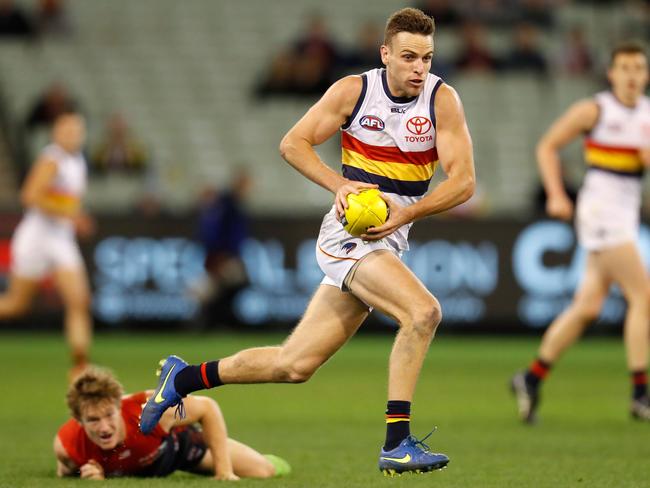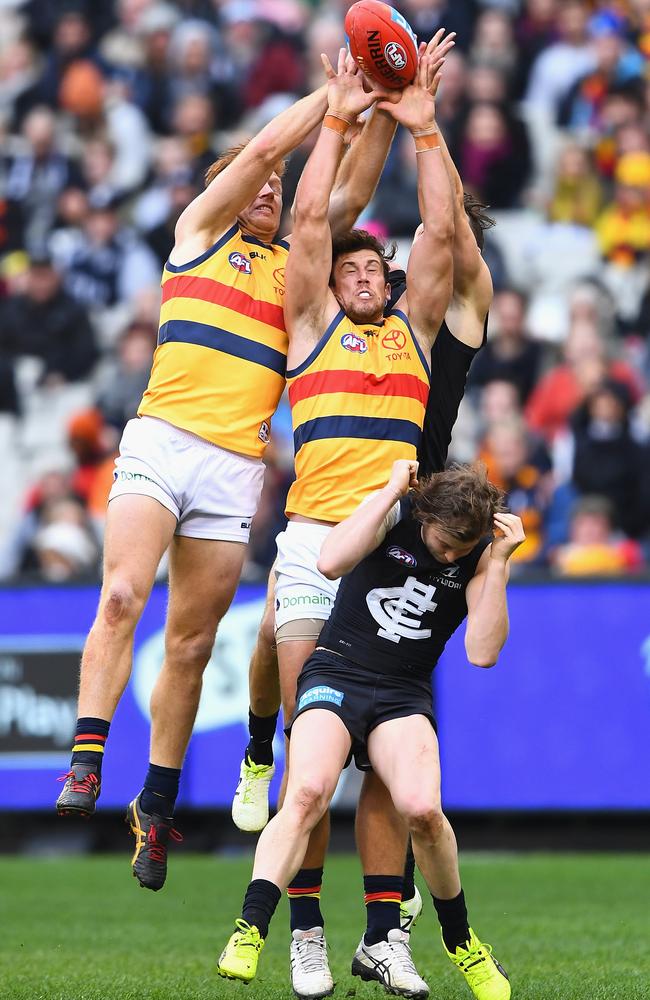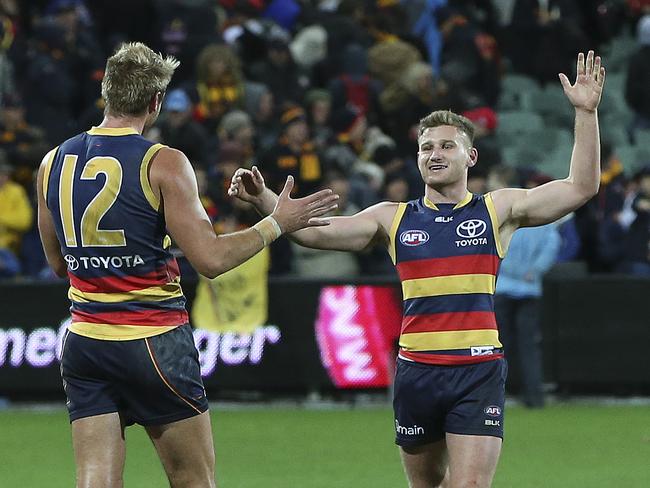Number Crunch: Weakness now a strength as Crows defence stands up
ADELAIDE’S defence was supposed to be its Achilles heel, reports Andrew Capel. While its attack is statistically the most potent in the league, the backline was projected as the weak link.
ADELAIDE’S defence was supposed to be its Achilles heel.
While its attack — led by stars Taylor Walker, Eddie Betts and Josh Jenkins, is statistically the most potent in the league and the greatest in club history — the backline was projected as the weak link, incapable of blanketing the opposition enough to make a serious premiership assault.
Recent history shows teams conceding more than 86 points a game don’t win the flag.
Only two sides in the past 17 years — North Melbourne in 1999 (97 points) and Brisbane in 2001 (90) — have won the premiership after coughing up such scores.
After round eight things looked bleak when Adelaide had a 4-4 record and had conceded 98.1 points a game.
But in a remarkable turnaround, the Crows have conceded the third-fewest points from rounds nine to 16.
The 70.3 points a game they have given up in their seven-match winning streak ranks only behind Sydney (62.9) and Hawthorn (69.4).
Adelaide’s season average of 85.1 points conceded — ranked eighth overall — has catapulted it into Champion Data’s premiership window for the first time this season.

The table illustrates 15 of the past 17 premiers have conceded fewer than 86 points a game while 16 of the flag winners have averaged more than 100 points.
The Crows, who jumped into the top four for the first time this season by thumping Carlton by 10 goals on Sunday, have had the offensive base covered all year.
Their scoring average of 112.6 points is the best in the competition — 4.1 points higher than next-ranked GWS.
But now their unheralded defence is catching up.
In the past two months Adelaide has not conceded 100 points and in six of its past seven matches it has restricted the opposition to 85 points or under.

Carlton managed 47 points on Sunday and St Kilda scored only 45 points in round 11.
Leadership member Daniel Talia — an All-Australian and club champion in 2014 — has led the way. Talia’s average disposals have risen from 10.6 last year to 16.1 while he is averaging 72 more metres gained, up from 152 to 224.
All seven members of the Crows main defenders — those who Champion Data lists as spending more than 50 per cent of their game time in the back half — rank as average or above for key performance indicators.
They are Talia, fellow key backmen Kyle Hartigan and Kyle Cheney, lockdown back pocket Luke Brown, who is sidelined by groin soreness, and half-back playmakers Rory Laird and Brodie Smith.
Another player Adelaide likes to use in the back half, Ricky Henderson, is classified as a midfielder by Champion Data, having spent 53 per cent of his game time this year (six matches) in the midfield.

“We’ve got a tight-knit group down there and we work really well together,’’ Laird said of the Crows’ backline success.
“We believe in ourselves and each other and we’re executing our game plan well.’’
Adelaide’s backline was under siege early in the season, having conceded a whopping average of 59.6 inside 50s in the opening eight rounds.
“We identified early in the season that we were leaking too many inside 50s and that while our ability to score wasn’t in question our ability to stop the opposition scoring was an area we had to improve on,’’ coach Don Pyke said.
